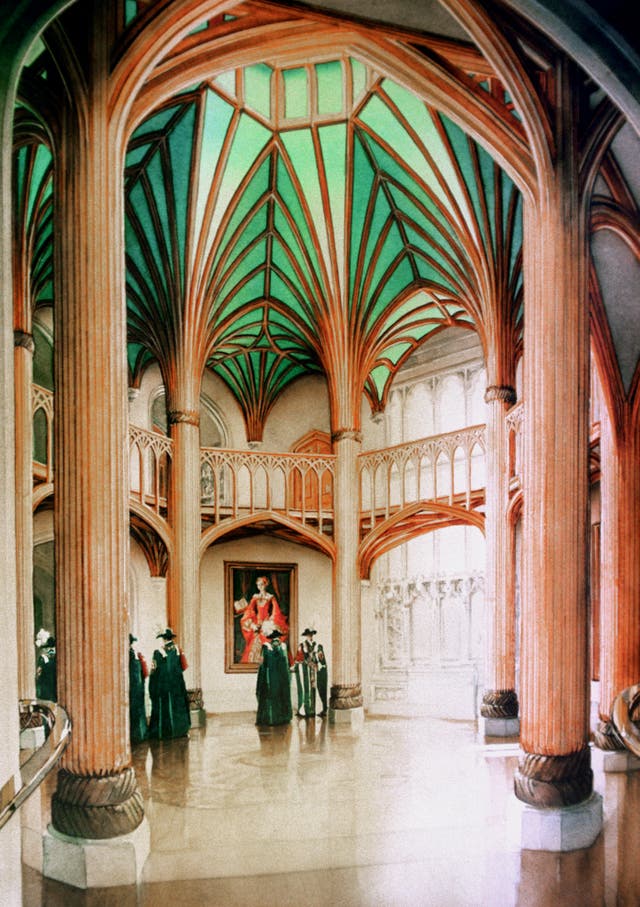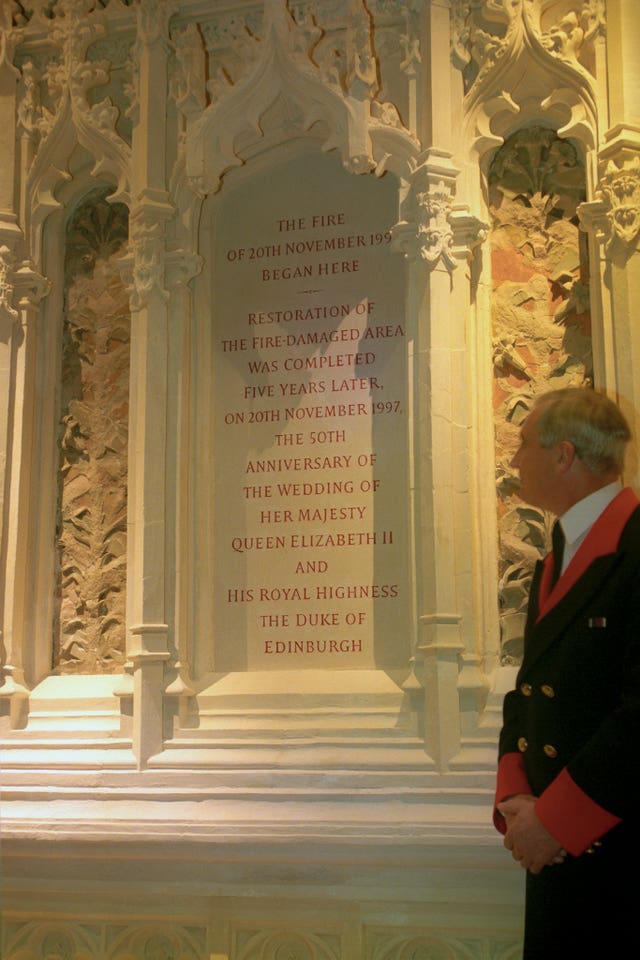Private chapel for Archie’s christening was rebuilt after Windsor Castle fire
The tiny place of worship sits in the inner sanctum of the Queen’s favourite home.

The intimate private chapel where Archie Mountbatten-Windsor will be christened had to be entirely rebuilt following the devastating Windsor Castle fire.
Now with a distinctive blue vaulted ceiling and white walls, the tiny place of worship sits in the inner sanctum of the Queen’s favourite home.
Among its new features are six stained glass windows designed by Archie’s great-grandfather the Duke of Edinburgh.
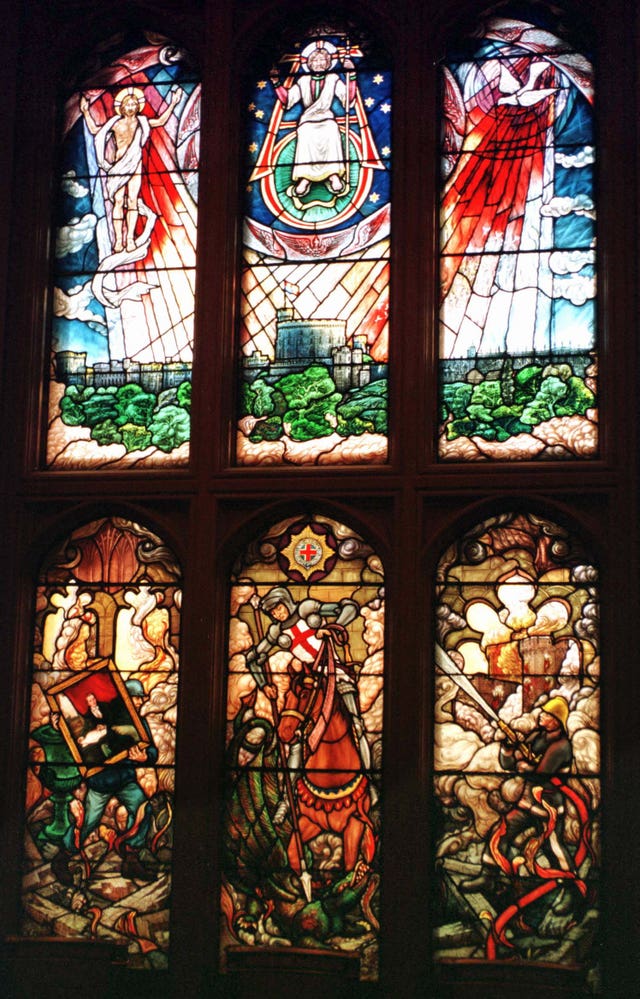
More than 200 firefighters from seven counties tackled the inferno, while staff rushed to remove precious works of art from the Royal Collection from the path of the fire, forming a human chain, helped by the Duke of York, who was in the castle at the time.
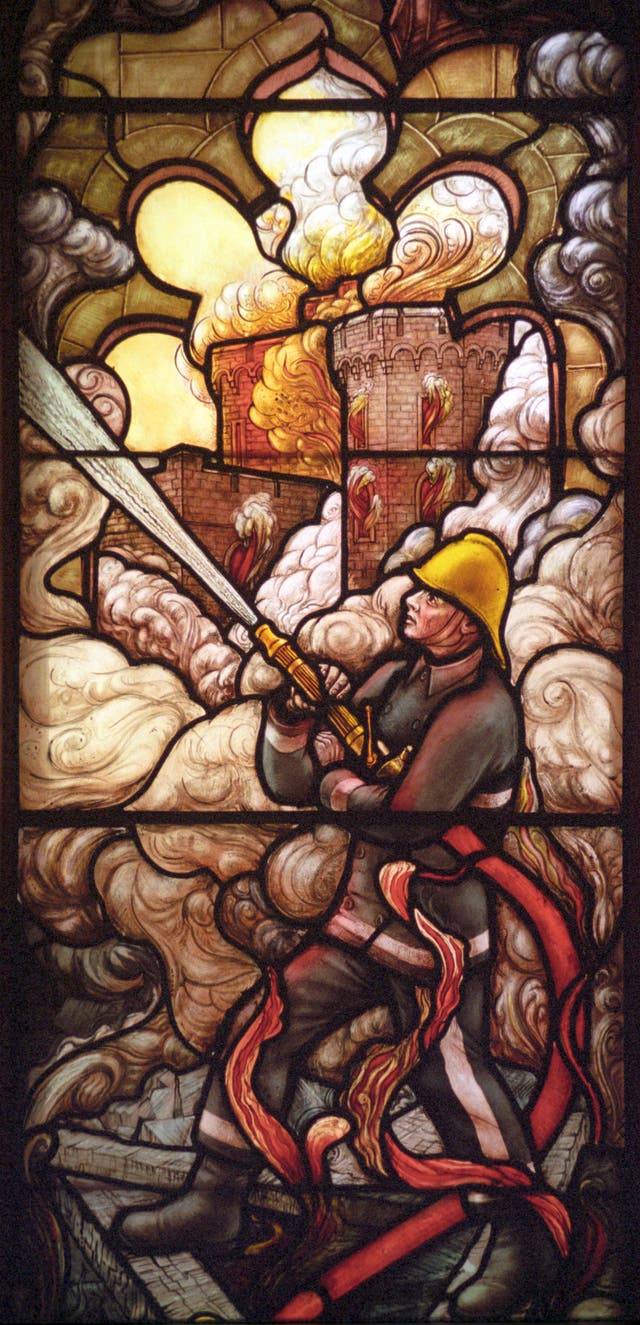
More than 100 rooms including nine State Rooms and the vast medieval St George’s Hall were destroyed.
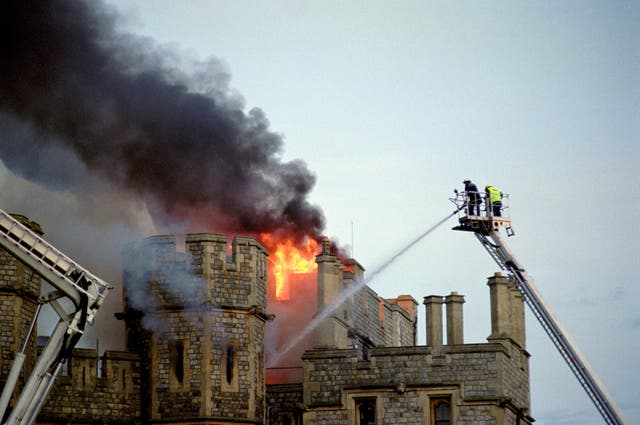
It was formed from a music room for the monarch in the 1840s by the architect Edward Blore, and Victoria regularly worshipped there.
Her daughter Princess Helena was married in the tiny chapel and several of her other children were confirmed and christened in the historic setting, which was separated from St George’s Hall by a beautifully carved screen.
It was also where the Queen, the Prince of Wales and the Princess Royal were confirmed, and where royals including the Earl of Wessex and Zara Phillips were christened.
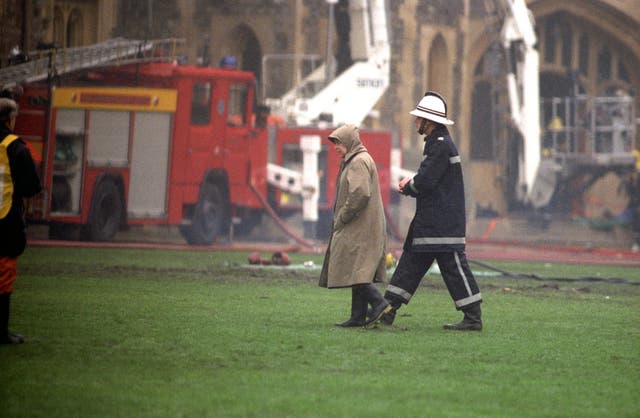
As part of the £37 million restoration project, it was redesigned and relocated from the end of St George’s Hall to the more practical position within the area of the old Holbein Room.
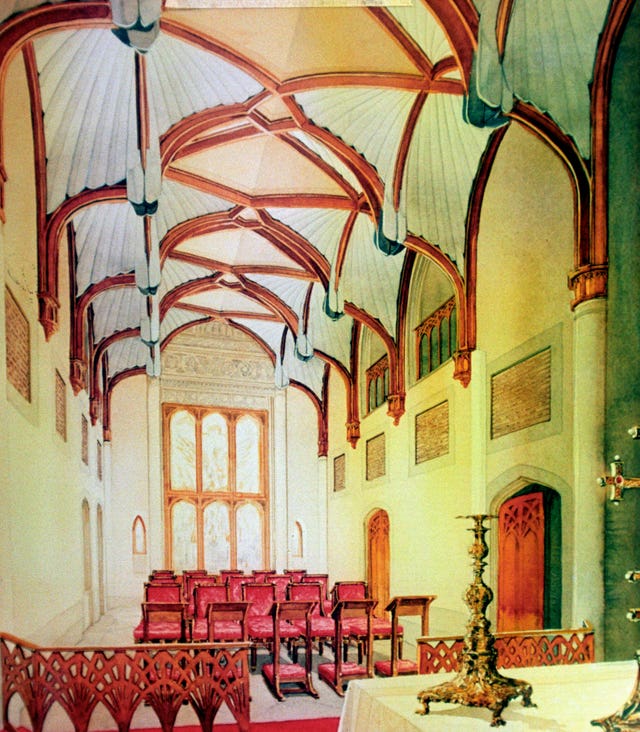
Archie will be christened in the sanctuary, just like the Earl and Countess of Wessex’s daughter Lady Louise Windsor was in 2004.
The chapel was fashioned with a new vestry, arched balconies with choir and organ lofts and carved wooden doors, matching the ceiling decoration.
Its wooden altar was crafted by the Queen’s nephew, Viscount Linley, now the Earl of Snowdon.
The site of the original chapel is now the gothic-style octagonal ante-room which serves as a grand entrance for state dinners.
